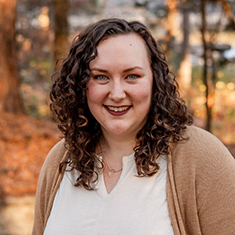Around 70 percent of Sierra Leoneans live in rural areas, the large majority of them depending on agriculture for their livelihoods. Issues of land ownership, tenure, and inheritance rights are therefore crucial to virtually every rural household. But these issues are bound up in a system of customary law that in turn reflects endemic gender discrimination. One of the most vexing problems facing women and girls, for example, is the dispossession of their land in the event that a husband dies without the customary marriage being formally registered. It’s a problem that has drawn the attention of the U.K. Department for International Development (DFID), and one where DFID’s Access to Security and Justice Programme (ASJP) made substantial headway.
ASJP was a partnership between the governments of the United Kingdom and Sierra Leone, implemented by DAI in a consortium with the Law and Development Programme and Social Development Direct. The programme ran from 2011 to mid-2016. Operating in eight districts and at the national level, ASJP aimed to improve access to security and justice for 700,000 women and girls. ASJP’s research—complemented by information from its partners in civil society, the chiefdom structures, and government—revealed that insecure land tenure constitutes a major threat to women’s security and impedes access to justice for them and their children. The programme therefore supported advocacy by civil society and by government ministries, departments, and agencies to make registration of customary marriages more accessible and commonplace in rural Sierra Leone, with significant results.
In Sierra Leone, customary law sits alongside statutory law, but in rural areas, where there is little access to statutory justice services, customary law tends to prevail. On land tenure issues, for example, people typically rely on village chiefs to resolve disputes. And when it comes to marriage—which is almost universal—customary marriages tend to dominate, even though they are not recognized by the statutory law.
.jpg)
Crucially, unless a customary marriage is registered with the local councils, it does not confer any property rights on the husband or wife. So if one spouse dies, the couple’s land may revert to the deceased spouse’s family. For women—who are often the main workers, breadwinners, and caregivers in households, and depend on their land to make a living and support their children—this means that if a husband dies or if a woman wants to dissolve a marriage due to domestic abuse, she may have no rights over the land she has worked and in that case could be removed from it by her husband’s family. Her children, likewise, have no rights to the land.
Cost is Key
The principal obstacle to the registration of customary marriages has been the cost. Most rural Sierra Leoneans are poor; the fee of between 250,000 and 300,000 Leones (around £40, or $50) is prohibitive. Adding the cost of getting the couple and the requisite four witnesses to the distant local councils—plus the loss of a day’s work or profit in the local market—puts registration beyond the reach of most rural people, particularly in the light of competing priorities such as school, health care, and shelter. Another obstacle is that men have tended to think of registering customary marriages as something that benefits only women and potentially threatens their masculinity or social standing.
ASJP worked with civil society groups on local advocacy campaigns in five (Kenema, Kono, Bonthe, Moyamba, and Koinadugu) of its eight focus districts and at the national level. These efforts convinced local councils in all five districts to dramatically reduce the registration fee to 50,000 Leones (about £8, or $10) and to cut the number of required witnesses from four to two. Equally important, the authorities agreed to a system whereby couples inform their local chief of their intention to register their marriages; when 20 or more couples have registered similar intentions, the Chief Administrator and a team from the local councils come to the community, rather than requiring the couples to travel to the local council.
Even the smaller fee, however, is still out of reach for many rural people. To address this, ASJP’s partners in government and civil society proposed to reduce the fee further, balancing accessibility for the majority of people with the revenue requirements of the local councils—so that they can administer the registration service in a sustainable way.
Tackling Men’s Attitudes
ASJP’s partners tackled men’s resistance to registration head on. Rather than promoting registration as furthering women’s rights, the partners convinced men through radio broadcasts, community meetings, and household discussions of the benefits to them—as men—of registration. Husbands and fathers were challenged to consider whether they would be happy to see their children made destitute if they died, and encouraged to think that this would not reflect well on them as men. “As old as I am, I think registering our marriage was the best option I took to secure and protect my family. I feel relieved at the moment,” said one man after registering his customary marriage.
Men were also shown how registration can solidify a relationship and make both parties more secure, promoting harmony in the home. This approach reaped rewards in terms of furthering men’s as well as women’s commitment to registering their marriages, with men citing increased confidence in their relationships as a result of registration:
“I am married with three children. Seven years of our marriage was marked by fear, hesitant that someone may snatch my wife from me simply because our marriage has no legal binding/document. The cost of registering a marriage deterred my effort to solicit one but … the reduction in cost granted me the chance to register our marriage.” I felt relief for the first time in our matrimonial life, security of me and my partner is now guaranteed. I am 100 percent sure that my wife will now live with me until death. My wife and I are living happily, many thanks for HELP-Salone and ASJP.”
As local chiefs hold so much influence in the rural areas, ASJP supported its partners to focus advocacy efforts on these leaders so that they would register their own marriages. In just three months in one chiefdom, 10 (male) traditional leaders registered their marriages, setting a strong example for the men in their communities.
Leveraging the Private Sector
Many extractive industries operate in Sierra Leone. These industries attract mostly male workers who either marry women from the local area or are already married. One of these companies, the nationally owned Sierra Rutile, operates in Bonthe district. Thanks to advocacy from ASJP’s partner organisations, Sierra Rutile in November 2014 made marriage registration a condition of employment for any male employee who has a customary marriage. This one initiative increased land security and access to security and justice for all the customary wives of male employees of one of Sierra Leone’s largest employers.
Dealing with the Ebola crisis
In June 2014, Sierra Leone and its neighbouring countries were hit by an unprecedented outbreak of the Ebola virus. The national government imposed restrictions on travel and meetings to prevent transmission, exempting only those activities directly related to the outbreak. Fearing that these restrictions would roll back the achievements of the registration campaign and that more women would be left landless as men died from the disease, ASJP’s civil society partners persuaded the government to allow the registrations and associated activities to continue. During that time, the partners emphasised the benefits for both men and women of registering their marriages in the face of the Ebola crisis, calling the registrations “Ebola marriages.”
Going National
In April 2015, ASJP and its partners organised a national conference on the issue of registering customary marriages. In attendance were all relevant government ministries and stakeholders, including the Ministry of Local Government and Rural Development; the Ministry of Social Welfare, Gender, and Children’s Affairs; paramount chiefs; and local councils. The government, civil society groups, and ASJP committed to take forward the measures designed to make registration of customary marriages more accessible to rural people. As a result of the ASJP initiative, the district of Tonkolili—one of the ASJP’s focus districts but not one of this project’s districts—went further and reduced the fees to 30,000 Le (approximately £3.20, or $4), setting an example for the rest of the country.
As of March 2016, DAI estimated that the ASJP’s customary marriage initiative had improved access to security through land and property rights for 309,450 women over 18. Assuming an average of two daughters per woman, the number of women and girls with increased access to security through land and property rights goes up to more than 928,000. If the initiative is taken up nationally, the potential number of women and girls benefiting in this way increases to around 1.83 million. These figures are conservative, based on a calculation that only 50 percent of the rural community can afford the 50,000 Le fee. If the fees are reduced yet further in line with the example set in Tonkolili, this number can be expected to increase even more.
More to Be Done
ASJP and its partners recognized that current legislation on this issue remains flawed. It does not protect girls (or boys) from being married while still children, for example. It also does not protect women and girls where the man’s family—rather than the man as an individual—owns the land or property that has been jointly used by the couple. But the national conference identified those problem areas and ASJP’s partners in civil society and government committed to maintaining the momentum on legislative reform.
ASJP’s work on the registration of customary marriages has demonstrated the convergence between security and justice, on the one hand, and issues of land tenure on the other; it shows that a gendered and women’s rights-based approach, focused in this case on the intersection between security and justice and land rights, can benefit women and girls as well as men and boys in one of the poorest, most marginalised areas of the world.




